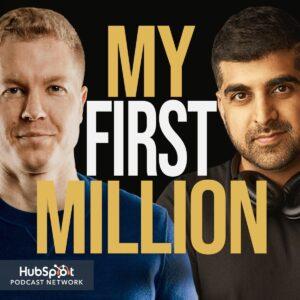Intro
In this episode of Startalk Radio, host Neil deGrasse Tyson dives into the cosmic queries sent in by listeners on a wide range of subjects. From the limitations of human senses to the potential of space exploration, Tyson explores the wonders of the universe and our place within it.
Main Takeaways
Unveiling the Unseen
- Humans only sense a small portion of the physical world, including infrared and ultraviolet radiation.
- Before science and technology, people believed that the world only contained what they could sense.
- Anton van Leeuwenhoek’s curiosity led him to discover microorganisms in pond water using a microscope.
- Science requires the verification of extraordinary claims to advance.
- Microscopes have allowed for significant advancements in medicine and disease tracking.
Expanding Our Senses
- William Herschel’s discovery of infrared light expanded our understanding of the universe beyond our senses.
- Modern science acknowledges the existence of things beyond our senses and relies on tools to decode the universe.
- India’s recent moon mission was accomplished on a super low budget of just $75 million.
- NASA could learn from India’s cost-effective approach to space missions.
- Collaboration in space allows countries to bring their strengths together.
Exploring the Unknown
- The Artemis Accord is a document signed by modern space-faring nations to share data and collaborate.
- Competition can stimulate innovation and achievement in space exploration.
- Discovering water on the moon can make it a resource, leading to the possibility of moon wars.
- Water is a valuable resource in space as it is the propulsion system to take us further.
- Pursuing scientific literacy in space can bring everybody together, regardless of religion or nationality.
Our Place in the Universe
- Advanced aliens may not even see us as we are not advanced enough to be seen, just like how we don’t care about bugs and worms when building our homes.
- Humans are only 1.5% genetically different from chimpanzees, yet we have accomplished so much more.
- If a species 1.5% more intelligent than humans existed, we would appear to them as chimpanzees do to us.
- Human knowledge and achievement is cumulative, enabling us to see farther into the universe.
- Matter and energy influence the space-time continuum by curving it towards them.
The Mysteries of Space
- The universe is under no obligation to make sense to us.
- The fabric of spacetime is adjusted by concentrations of matter and energy, causing time to slow down in their vicinity.
- GPS satellites have a different time system than Earth’s surface due to the effects of spacetime.
- The multiverse theory suggests that other universes may have their own clocks and may have come into existence at different times.
- The Milky Way looks like a cloud because of the human eye’s inability to resolve the component stars, even though it is very flat and thin.
Summary
Unveiling the Unseen
In this segment, Neil deGrasse Tyson explores the limitations of human senses and how scientific advancements have allowed us to perceive the previously invisible. From Anton van Leeuwenhoek’s discovery of microorganisms to the significant role of microscopes in medicine, Tyson emphasizes the importance of questioning the world around us.
Expanding Our Senses
Tyson delves into the realm of space exploration, highlighting India’s cost-effective moon mission and the potential for collaboration among nations. The discovery of water on the moon opens up new possibilities for resource utilization, while pursuing scientific literacy in space can unite people across borders and beliefs.
Exploring the Unknown
The Artemis Accord and the role of competition in space exploration are discussed, along with the implications of water as a valuable resource. Tyson raises the question of whether the pursuit of knowledge in space could lead to conflicts, emphasizing the need for responsible exploration.
Our Place in the Universe
Examining the concept of advanced aliens and our own evolutionary progress, Tyson prompts listeners to consider our relative position in the universe. Despite our genetic similarities to chimpanzees, humans have achieved remarkable feats, expanding our knowledge and understanding of the cosmos.
The Mysteries of Space
Tyson delves into the mind-boggling nature of the universe, emphasizing that it may not always align with our human logic. The effects of matter and energy on spacetime, the concept of multiverses, and the challenges of perceiving the vastness of the Milky Way are explored, leaving listeners in awe of the mysteries that lie beyond our comprehension.
Conclusion
This episode of Startalk Radio takes listeners on a journey through the wonders of the universe, from the unseen world revealed by science to the mysteries that continue to elude our understanding. Neil deGrasse Tyson encourages curiosity, collaboration, and responsible exploration as we strive to uncover the secrets of the cosmos.
